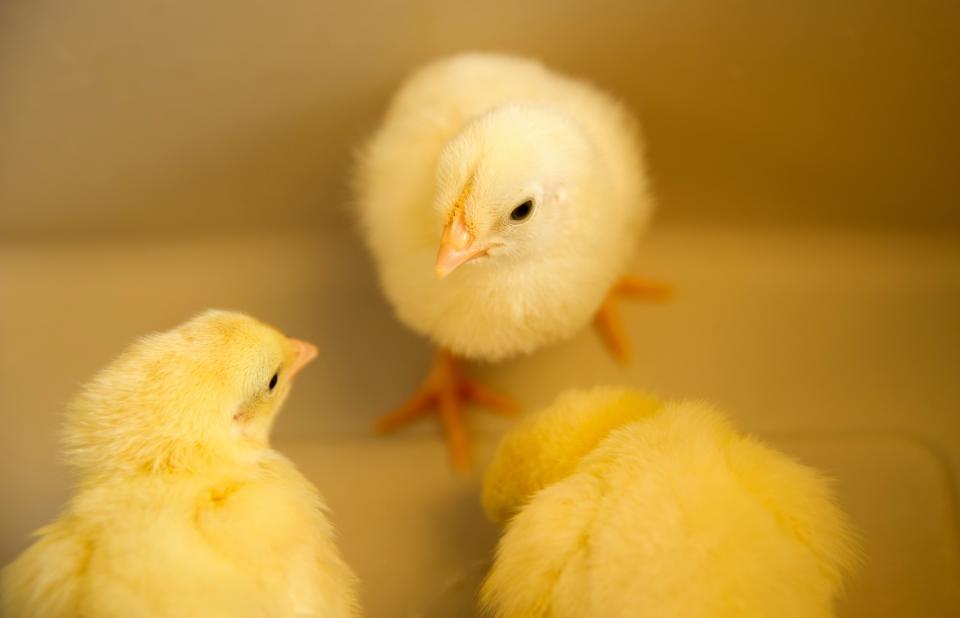
Baby chicks
Credit: UC Davis
April 17, 2020 - Each year as spring arrives across the country, many people start or grow their backyard poultry flocks and this year in particular, the number of new flock keepers appears to be growing quickly. The United States Department of Agriculture’s (USDA) Animal and Plant Health Inspection Service (APHIS) has an educational campaign that offers many resources to help protect the health of all poultry flocks.
The Defend the Flock campaign focuses on sharing good biosecurity practices that, when practiced every day, every time, will help protect poultry from infectious diseases. Many new owners are starting from scratch and the best time to implement strong biosecurity is right from the start.
The same types of biosecurity practices, customized to each flock’s set-up, protect not only backyard flocks but also our nation’s commercial poultry as well. Biosecurity is the key to keeping our nation’s poultry healthy. It’s a responsibility that all poultry owners, raisers, and workers share.
A few quick tips for new owners –
- Always buy new poultry from a National Poultry Improvement Plan (NPIP)-certified flock. Participants in the NPIP program must meet certain flock health and sanitation standards. Visit the NPIP website and search participants by State: http://www.poultryimprovement.org/statesContent.cfm Participants should provide potential buyers with their NPIP number upon request.
- Purchasing day-old chicks is a less risky way to start your flock than bringing home older birds.
- Always wash your hands with soap and water before AND after handling your flock.
- Keep your birds secure and protected from predators. Prevent contact with wild birds and rodents, who can introduce germs into the flock.
- If you are raising chicks, you will need a heat source to keep them warm until their feathers grow in. Heat lamps can be fire hazards, so seek advice on proper use of heat lamps, or consider alternatives, such as chick warming plates.
- Each day, provide fresh water and the right food for your flock, depending on their age and purpose.
- Keep your coop area clean, free of clutter, and disinfect it regularly.
- Have a dedicated set of coveralls/clothes and boots you use when you work with your flock. Clean and disinfect them regularly and do not wear them outside of the coop area.
- Learn about normal poultry behavior, so you’ll recognize flock problems. Your local Cooperative Extension Service office or poultry association are good resources for learning about your new birds. You can find contact information through a basic online search.
Raising backyard poultry can be a fun and fulfilling experience, but it is essential that all flock owners learn about and practice good biosecurity daily. Practicing good biosecurity is vital in protecting your own birds, neighboring flocks and our nation’s poultry industry.
Whether you are new to owning poultry or have years of experience, check out APHIS’ Defend the Flock website and visit the Resource Center. There you will find webinars, checklists, videos and social media graphics you can use to learn how you can defend your flock – and our nation’s poultry – from serious diseases like avian influenza and virulent Newcastle diseases. Visit www.aphis.usda.gov/animalhealth/defendtheflock today!
Source: USDA








